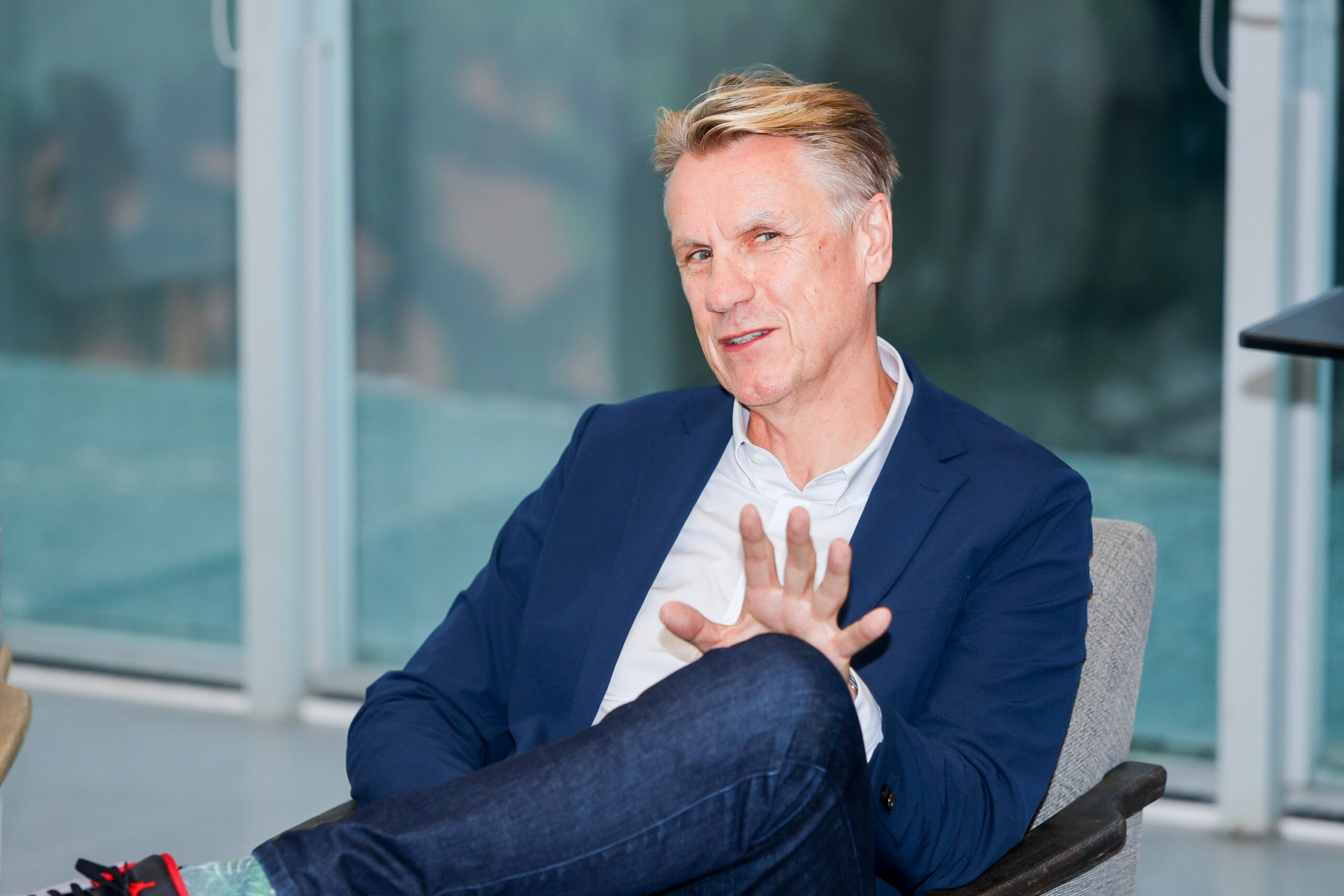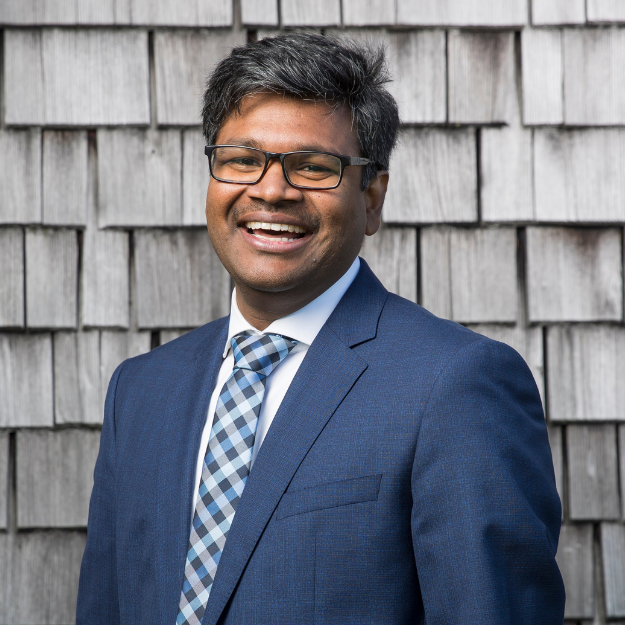
Dear Fashion: Let’s Step Up and Get Aligned
In a recent opinion editorial with WWD, CEO Colin Browne argues fashion needs to take more serious and coordinated action on sustainability. Read the highlights here!

Cascale: Have you always considered yourself a sustainability advocate?
KM: have been working in the area for over 15 years across different sustainability topics and organizations. Sometimes those organizations are not yet on the forefront of sustainability, so I had to do a lot of advocacy work within the company as an intrapreneur. For example, I was consulting on introducing electronic waste policies (EPR) in Asia based on the extended producer responsibility principle almost 18 years ago. I also started working in the businesses to embed product sustainability thinking and integrate that into the core business, strategy, governance, and decision-making process. And I helped set up the first sustainability department for Lenzing Group with my colleagues and started embedding sustainability into strategy, targets, governance and in the core business and the day-to-day work of many business functions. So I would consider myself a sustainability advocate, and I keep learning and contributing in this way.
Cascale: How can governments, NGOs, and other affiliates support manufacturers in driving lasting change?
KM: We wanted to go far, and each of us have different competencies and understanding of the system. In the case of transformation, you need governments to fund innovations until they become scalable on their own. At the same time, NGOs need to create the urgency required in the society – whether it’s consumer awareness or to rally investors and other companies in the value chain. You also need NGOs to address the biggest problems we are facing, and sometimes the capital markets also need to be roped in. Effectively, we need to create an ecosystem of change. Without that ecosystem, we cannot bring that change. Every stakeholder has a role to play to bring a level playing field, and also create the urgency for the change that we need to see in the world.
Cascale: What do you make of the fiber funding space, at present?
KM: I believe industry and ecosystem has failed us; we are not supporting innovators enough and we are not changing our old ways. Every stakeholder needs to take responsibility. For example, brands need to design products for circularity, and translate their commitments into real buying of volumes from these innovators. Sometimes they are not at commercial scale, but you need to help them bring those innovations to market.
Investment plays a huge role. Companies like ours need to invest more in their mission to adapt to process these new innovative materials and this also takes a long time. The innovators themselves have to learn a lot to improve the quality of materials.
Unless you have good venture backing, you may not be able to operate. Investors most of the time have expectations, in the case of recent news, that innovators operate like mainstream businesses. I think we are missing the point that there is no level playing field for those sustainable materials. They need a lot of support for capital expenditure and operational expenditure to become commercially viable.
The policymakers also have a huge role to play in terms of funding. Policymakers need to design instruments and fund Innovators for both those capital and also operational expenditures in the long run, before they become commercially viable in the system.
Cascale: Why has Lenzing been so successful?
KM: As innovators, we faced the same challenges but we had a different scale and an existing conventional product which helps us survive in the market. Our Tencel-branded Lyocell fibers are a good example. They recently celebrated more than 30 years but it took over two decades to scale that Lyocell innovation to be commercially viable in the market.
To achieve the economies of scale, we also received EU funding to build a plant in Austria itself. When you introduce a new material in the market, the textile value chain is very long. You have spinning, knitting, weaving, dyeing, finishing, and garment making. Each process needs a lot of machinery, and all of those machines need to handle this new material.
You need to teach the whole value chain how to process your material. We had like 100 to 120 textile engineers traveling the world for more than two decades just teaching the value chain partners how to process our fibers in different settings. That took a lot of investment from Lenzing. We also work a lot with the end customers like brands and retailers, so we have our business development and application development with the designers. We have been working on developing those new products, new applications, and then creating the pull from the market from the end consumer and the customer. So it’s both the push in the textile value chain but also pull from the brands and retailers and the government funding. All those things came together. That’s why we could actually succeed. Without that, it was really difficult. This is one of the examples of why we need an ecosystem to help innovations succeed.
Cascale: How do we foster equal partnerships for the long term across the value chain?
KM: It all comes down to the mutual respect we have towards each other. We need to engage suppliers, seek feedback, and understand each other’s point of view. I think we have a long way to go because sometimes there are hierarchies in the value chain. We need to traverse those boundaries and come together on equal footing and be more like co-creators of the impact that we want rather than, ‘I tell you. You do it.’
For example, we have around 9,000 suppliers in Lenzing, and we have been working with 30 or 40 of them for a long time. We know that when we set our climate change target, we cannot actually reach that target ourselves because more than 50 percent of our emissions come from our upstream suppliers. So we have engaged them and shared our ambition asking what they can do differently. Where do we need to support them? Some of our relationships go for more than two to three decades. Because of that long term partnership, we also have long-term contracts with them. They know that there is a long-term business relationship so they can invest in a low-carbon footprint material, for our product, at the end of the day. Long-term commitments give a signal to them that they matter, and we would like to keep them as one of our partners to invest, work with us, and share expertise.
Sometimes you also need to advocate for them with the policymakers. You need to do all those things together, but it all comes down to having this equal partnership.
Cascale: What are your sustainability aims within your role, Cascale, and the broader industry?
KM: I think we are a role model for other industries, which is why we needed to expand our reach to adjacent categories. I consider myself as a learning leader, and I continue to learn from others. There are so many people who have been there and done that, so we need to learn from those people. I am always looking back from that angle to learn from situations and help others. The second one is to help people succeed by making well-being part of the change-making process. There are so many sustainability practitioners today facing burnout because it is overwhelming work and very complex. I don’t want to pretend it is a cakewalk.
So, how can you help these people succeed? That’s what I focus on when I lead my team. Whenever I work with people, I try to make it part of the conversation that their well-being is very important for our change making. There is no change without taking care of the people because the end goal is to improve the life for the people. So, people are the focus here.
Lastly, my aim for Cascale and the broader industry is to be a conduit and bridge builder between perspectives while bringing people together. Cascale has many stakeholders, and we need to learn from each other to put those pieces of the transformation puzzle together.
Colin Browne, CEO, argues fashion needs to take more serious and coordinated action on sustainability.

Andrew Martin, EVP at Cascale, traces his visit to Hong Kong-based manufacturer Epic Group’s CIPL facility in Bangladesh showcasing sustainable innovation and a responsible future ahead.

At the end of June, Cascale published its 2023 Annual Report, showcasing many milestones, achievements, and a renewed strategic direction over the past year.